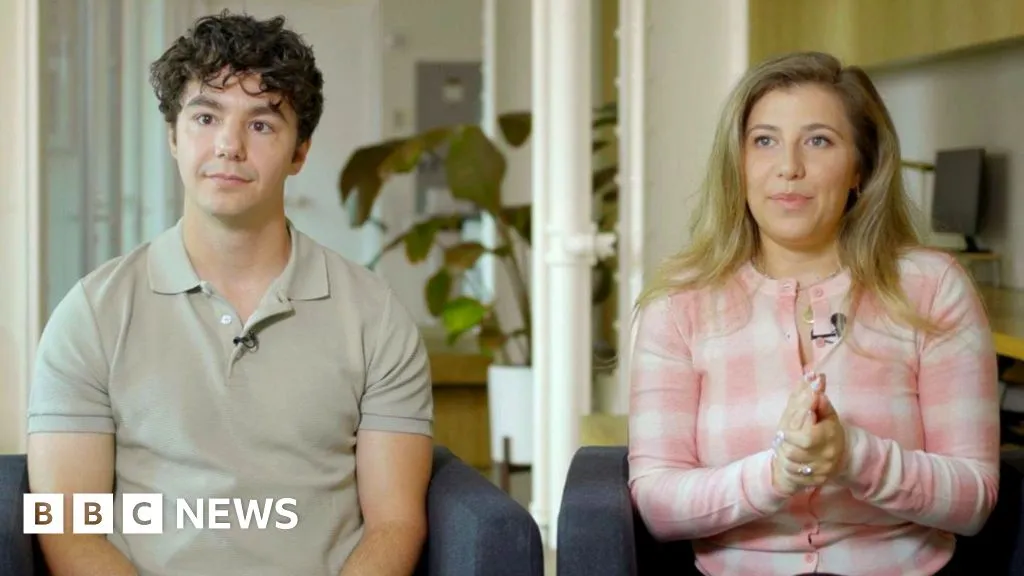- cross-posted to:
- aboringdystopia@lemmy.world
- cross-posted to:
- aboringdystopia@lemmy.world
In June 2023, Paul Skye Lehrman and his partner Linnea Sage were driving near their home in New York City, listening to a podcast about the ongoing strikes in Hollywood and how artificial intelligence (AI) could affect the industry.
The episode was of interest because the couple are voice-over performers and - like many other creatives - fear that human-sounding voice generators could soon be used to replace them.
This particular podcast had a unique hook – they interviewed an AI-powered chat bot, equipped with text-to-speech software, to ask how it thought the use of AI would affect jobs in Hollywood.
But, when it spoke, it sounded just like Mr Lehrman.
That night they spent hours online, searching for clues until they came across the site of text-to-speech platform Lovo. Once there, Ms Sage said she found a copy of her voice as well.
They have now filed a lawsuit against Lovo. The firm has not yet responded to that or the BBC’s requests for comment.



When polled what most people consistently want is to provide for their family without feeling like they’re struggling to do so. That standard varies by income class but for most people it simply means food, shelter, a night out with friends once a week, a night out with family once a week, and a vacation once a year. (It doesn’t need to be international or Disneyland)
You’re right that we’ve come a long way since the industrial revolution. However there’s two things you’re missing. The industrial revolution actually represented a lower standard of living for the workers moving into the cities, which is why we see the great statesmen of the 18th and 19th centuries begin to push for policies about sick pay, healthcare, unemployment insurance, and basic standards. They weren’t pro worker so much as they were trying to head unionization off by providing benefits the union speakers promised. Many of these people had times in living memory that they worked half the time and were able to drink at the pub and provide for their family. The top down benefits scheme of leaders like Bismarck didn’t work though because the owners were the ones setting the system up and they tried to give just enough to keep people quiescent. Not actually engage in the system with good faith.
So we fought literal shadow wars over the right to unionize and once we won that right things began to actually improve for workers. That brings us to point 2; we’ve seen how well we can share out the profits without going communist. We had a high water mark in the 1960’s and 1970’s of being able to pay for stuff with the fewest hours worked since workers had to move to the cities a couple hundred years prior. Since then though it has been a grinding degradation of purchasing power in the lower half of the economy. It doesn’t just feel like everything is more expensive, it actually is. The mode of income, (data point that appears the most in a set of data, in this case the income bucket that has the most people) sits around $30k a year. The household median is around $70k a year. Ideally we’d be clustered around that median except for outliers. In reality it seems that the dataset is relatively spare between those two numbers and then it has a more normal distribution after the median.
That means that all of our calculations based on the median don’t account for this group that’s stuck at half that number for some reason. The 70k-100k group might be saving less for retirement with the current inflation problems, but the 30k group is literally getting evicted. Recent studies show that homeless people are generally from the area that they’re homeless in, do not have a drug habit or picked one up only after becoming homeless, and they worked full time in the 12 months before becoming homeless.
We do live in a time of marvels. Which is why it’s so galling that we’re actively leaving people behind.